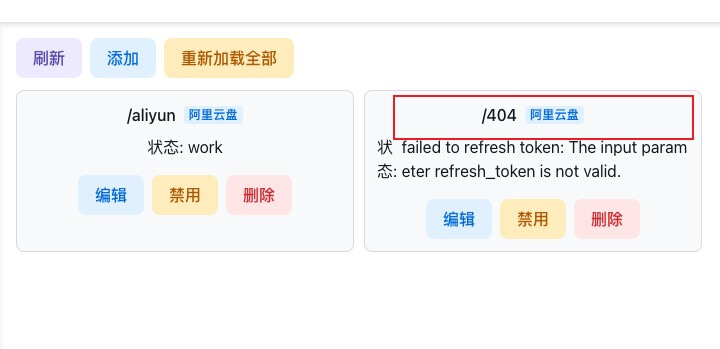The alist-infuse-atv combination is fantastic, here’s a summary
AList Installation
Aliyun Drive has been very popular recently, and alist deserves part of the credit. AList aggregates cloud storage resources and exposes WebDAV services or can be used for online viewing directly.
I recently deployed it on an Oracle Cloud server so it can be accessed from the internet.
# Official script installation, note that account password will be printed after startup
curl -fsSL "https://alist.nn.ci/v3.sh" | bash -s install
# Start service
systemctl start alist
# Update, password won't be modified
curl -fsSL "https://alist.nn.ci/v3.sh" | bash -s update
Official documentation 👉here
Auto Update
Manually configure a cron job to execute updates at scheduled times
# Execute daily at 6 AM, use crontab -e and press Enter to open editor
0 6 * * * curl -fsSL "https://alist.nn.ci/v3.sh" | bash -s update
HTTPS
For internet-deployed alist, if possible, it’s recommended to use HTTPS with a domain name. I recommend Caddy because it automatically applies for free certificates based on configured domains by default, ready to use out of the box
yum install yum-plugin-copr
yum copr enable @caddy/caddy
yum install caddy
Caddyfile configuration is as follows
alist.xx.xxx
reverse_proxy :5244
Common AList Configurations
Don’t deny guest user access
Create an empty storage directory, such as /404, and set the guest user’s base path to /404 in the user settings


Index
If you want search functionality on the web version, it’s recommended to enable indexing. The URL path is
/@manage/indexesEnable GitHub single sign-on support

Usage
Check current AList version
- Management page - Settings - Site - Version
Infuse
After deploying alist, besides web access, you can access it through apps like Infuse.
I use Infuse across multiple devices. The common approach is to add alist’s exposed WebDAV service to Infuse on Apple TV, which is very convenient for viewing.
Final Thoughts
Let’s start playing with it.

